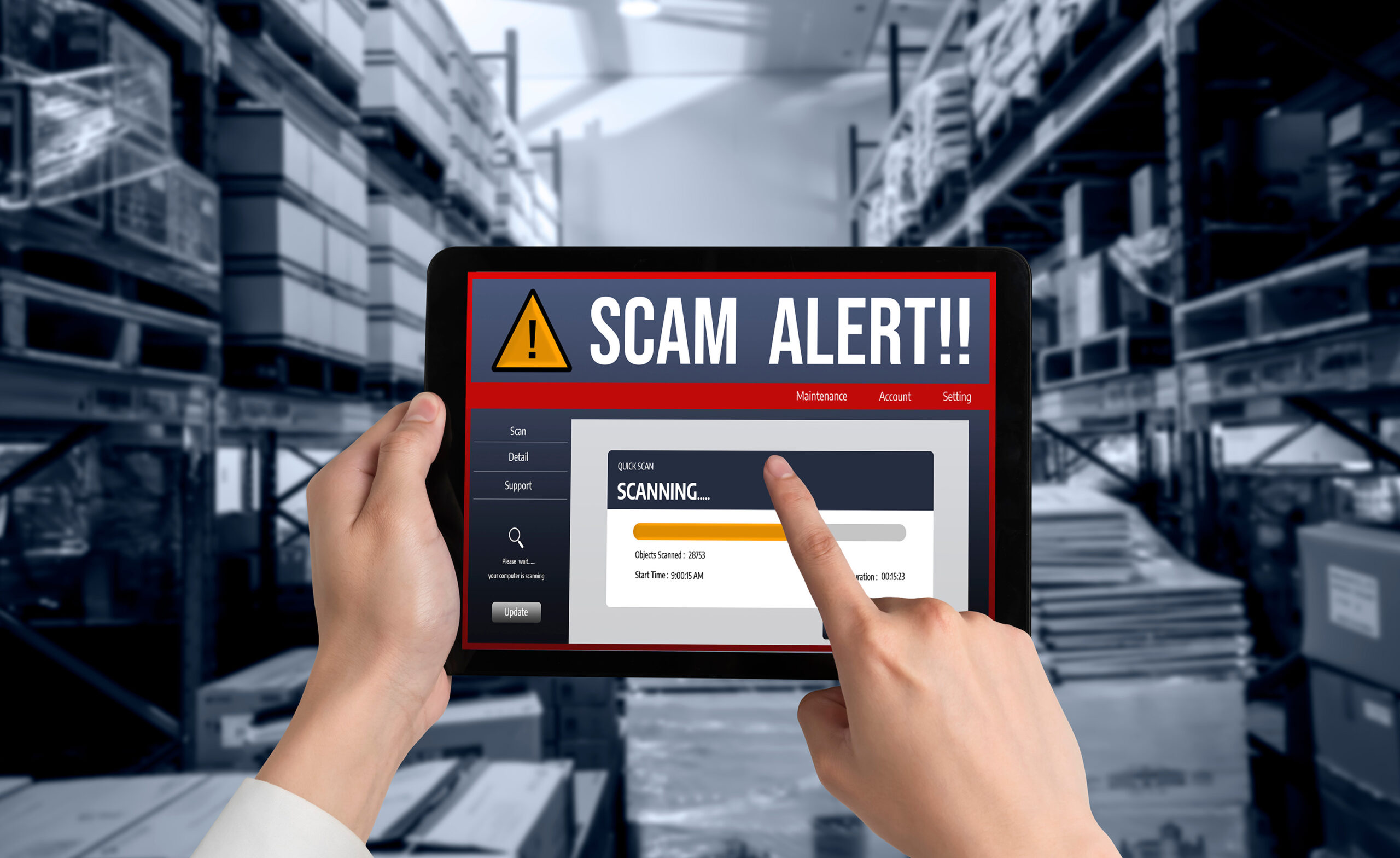In the logistics industry, where shipments and transactions often involve large sums of money and valuable goods, freight scams have become a growing concern. These scams can lead to lost freight, financial setbacks, and even damaged reputations. Understanding the most common types of freight scams and knowing how to protect your business are essential for staying secure in today’s logistics landscape. Here’s a guide to help you identify these schemes and safeguard your shipments, assets, and partnerships.
Fake Carrier Scams
What It Is: Scammers pose as legitimate carriers or brokers to win freight jobs. After receiving goods, they vanish, and the shipment is never delivered.
Protection Tips
- Always verify a carrier’s or broker’s MC/DOT number through official databases like the FMCSA.
- Use vetted, well-reviewed partners and request references if dealing with a new contact.
- Rely on trusted load boards with strict verification processes for carriers and brokers.
Double-Brokering Fraud
What It Is: A broker or carrier takes a load and reassigns it to another party without your knowledge, increasing risks of lost or mishandled freight.
Protection Tips
- Avoid unknown brokers with minimal online presence or track record.
- Track shipments closely to ensure the chosen carrier is the one handling your freight.
- Insist on direct contact with the carrier managing the load to reduce re-brokering risks.
Identity Theft and Phishing Scams
What It Is: Scammers impersonate known carriers or brokers via fake emails or cloned websites to trick businesses into sharing sensitive details or making unauthorized payments.
Protection Tips:
- Train your team to spot phishing signs, like suspicious email domains or unknown attachments.
- Verify legitimacy by contacting the company directly using verified contact info.
- Use two-factor authentication and secure email practices.
Load Board Scams
What It Is: Scammers post fake loads on load boards to capture personal information or secure upfront payments for non-existent shipments.
Protection Tips:
- Use established load boards that enforce user verification and security protocols.
- Be wary of unusually high-paying loads or requests for advance payments.
- Report suspicious listings to load board admins to help protect other users.
Ghost Company Scam
What It Is: Ghost companies are fake businesses that mimic legitimate carriers or brokers. They take loads and disappear, leaving you with lost goods and unpaid invoices.
Protection Tips:
- Research potential partners thoroughly, checking their business history, address, and contact details.
- Conduct background checks through industry associations or databases, as ghost companies often lack a verifiable industry presence.
- Avoid partners without online reviews, client references, or proper registration.
Final Thoughts
Staying informed on these common scams can help you build safer, more trustworthy logistics partnerships. By following best practices like verifying credentials, training your team on scam detection, and using secure platforms, you can significantly reduce your risk and keep your shipments protected.


